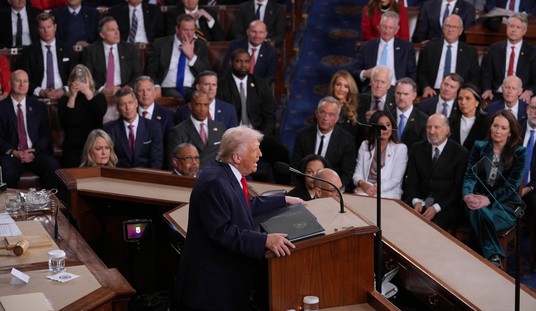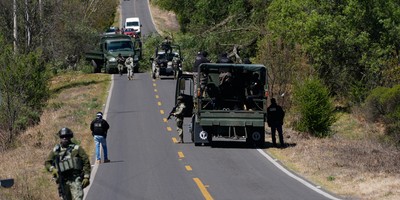While reading a book about Winston Churchill framed in his own words, I was struck by the vast difference between his leadership and our contemporary crop of leaders here in America. Where are the statesmen among us?
When President John F. Kennedy made Churchill an honorary American citizen in April, 1963, Kennedy said of him, “In the dark days and darker nights when Britain stood alone -- and most men save Englishmen despaired of England’s life -- he mobilized the English language and sent it into battle. The incandescent quality of his words illuminated the courage of his countrymen.”
Contrast that with today’s Twitter style of superficial, sound-bite leadership, where even the President of the United States, rather than mobilizing the English language and sending it into battle, tweets out meaningless slogans like “Love is love” (this in defense of same-sex “marriage”), thereby lowering himself to the level of the masses that he is supposed to lead and call higher.
Speaking of Churchill, the great British historian Martin Gilbert noted that, “Throughout his six decades in the public eye and in public life, he understood and wielded the power of words. . . . Churchill used words for different purposes: to argue for moral and political causes, to advocate courses of action in the social, national and international spheres, and to tell the story of his own life and that of Britain and its place in the world.”
Who among our current national leaders – in particular in the political sphere – is in the same universe as Churchill? Who among them is utilizing the power of words to inspire the populace, to build a vision of the future by telling the story of the past, to raise a standard of moral excellence? Can you name one?
Recommended
Who among our current national leaders even has memorable quotes – quotes that will stand the test of the generations – like some of Churchill’s classic axioms, including, “Success is not final, failure is not fatal: it is the courage to continue that counts.” And, “In war, resolution; in defeat, defiance; in victory, magnanimity.” And, perhaps his best known words, “Never give in–never, never, never, never, in nothing great or small, large or petty, never give in except to convictions of honour and good sense. Never yield to force; never yield to the apparently overwhelming might of the enemy.”
Contrast this with the current administration’s waffling over Syria, making America appear to the world like a paper tiger, and the glaring lack of senior statesmen in our midst becomes all the more clear.
And on the 50th anniversary of Martin Luther King’s “I Have a Dream” speech, the contrast between Dr. King’s leadership (despite his personal moral failures) and the current generation of Civil Rights leaders is immense.
Compare some of King’s most memorable words, still ringing true and still piercing the conscience more than half a century after his death, with the words of his best-known successors, like Rev. Al Sharpton.
For example, from Dr. King: “Darkness cannot drive out darkness; only light can do that. Hate cannot drive out hate; only love can do that.” And, “History will have to record that the greatest tragedy of this period of social transition was not the strident clamor of the bad people, but the appalling silence of the good people.” And, “Never forget that everything Hitler did in Germany was legal.” And, “Never succumb to the temptation of bitterness.”
Then, from Rev. Sharpton, in conjunction with the recent festivities honoring Dr. King’s 1963 speech: “We must give us our young people dreams again. You build jails, closed schools and break their dream and you wonder why they are wearing saggy pants.” Come again?
We have even lost our ability to speak to the nations with moral authority, to the point that a grizzled veteran like Senator John McCain, marked for life by the torture he experienced as a POW, had this to say with regard to the conflict in Syria, “Get the right weapons to the right people and we can turn this around and uh it is not that difficult. These are good people, I was in Syria with them and to say that we can't get the right weapons to the right people frankly is a cop out.”
Yes, by “good people,” Senator McCain is referring to the Al-Qaeda backed “freedom fighters,” also responsible for committing atrocities against Syria’s Christian population. And while it is true that the situation in Syria is terribly muddled, our own stance is equally muddled (not to mention our stance concerning Egypt). Where is our moral clarity?
Where are the statesmen like President Ronald Reagan, who transcended his cheap Hollywood background and became the leader who stood up to the Soviet Union?
Speaking in June, 1987 by the Brandenburg Gate near the Berlin Wall, he declared, “There is one sign the Soviets can make that would be unmistakable, that would advance dramatically the cause of freedom and peace. General Secretary Gorbachev, if you seek peace, if you seek prosperity for the Soviet Union and Eastern Europe, if you seek liberalization, come here to this gate. Mr. Gorbachev, open this gate. Mr. Gorbachev, Mr. Gorbachev, tear down this wall!”
Not long after, the wall came tumbling down.
Our nation will not rise beyond its leaders, and if we are to recover our greatness, we must pray for men and women of courage and conviction to arise, people savvy enough to reach our shallow, contemporary culture but deep enough to bring a transcendent message that will inspire.
It’s a tall order, but it’s possible. More importantly, it’s imperative.
























Join the conversation as a VIP Member